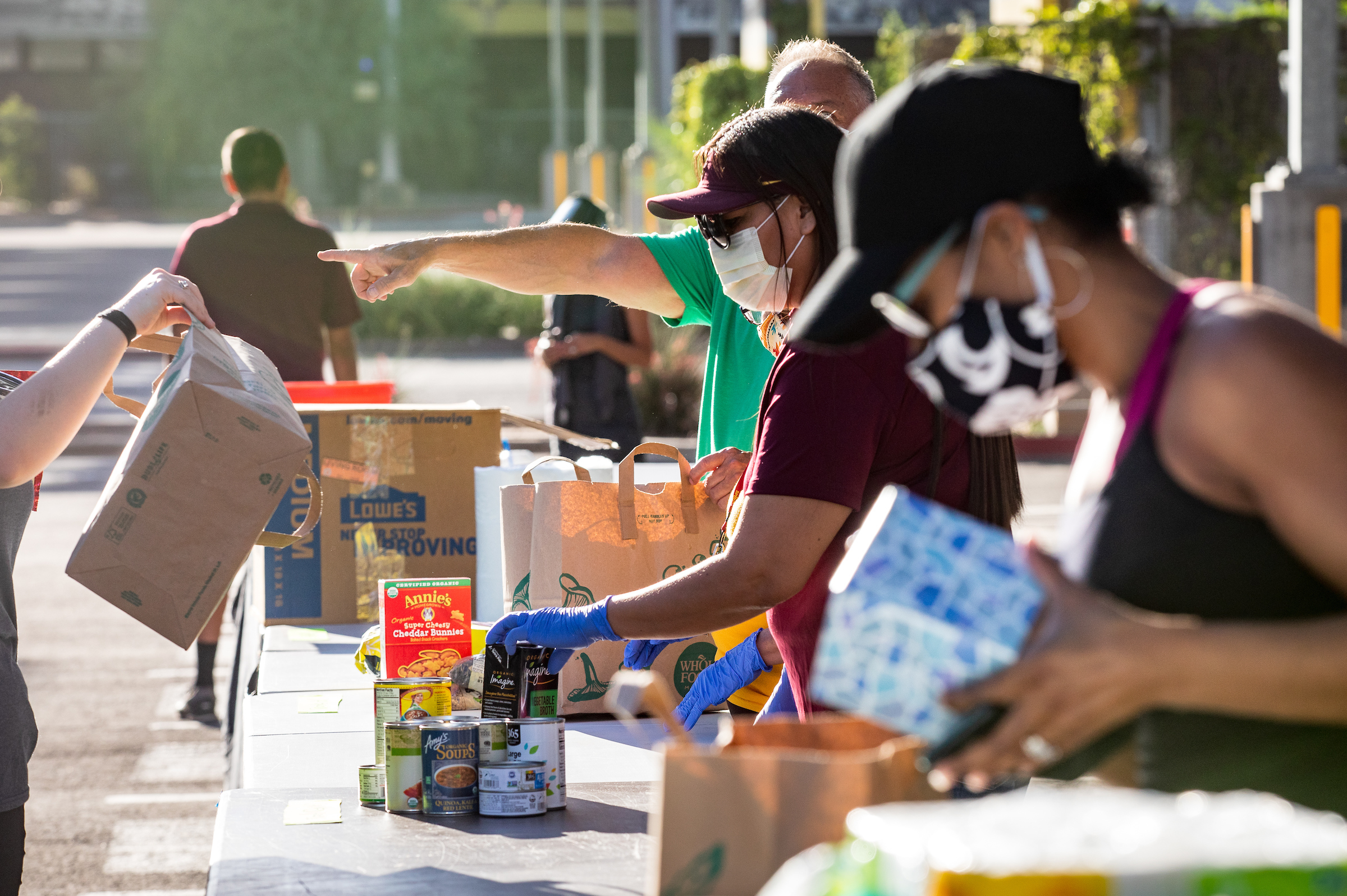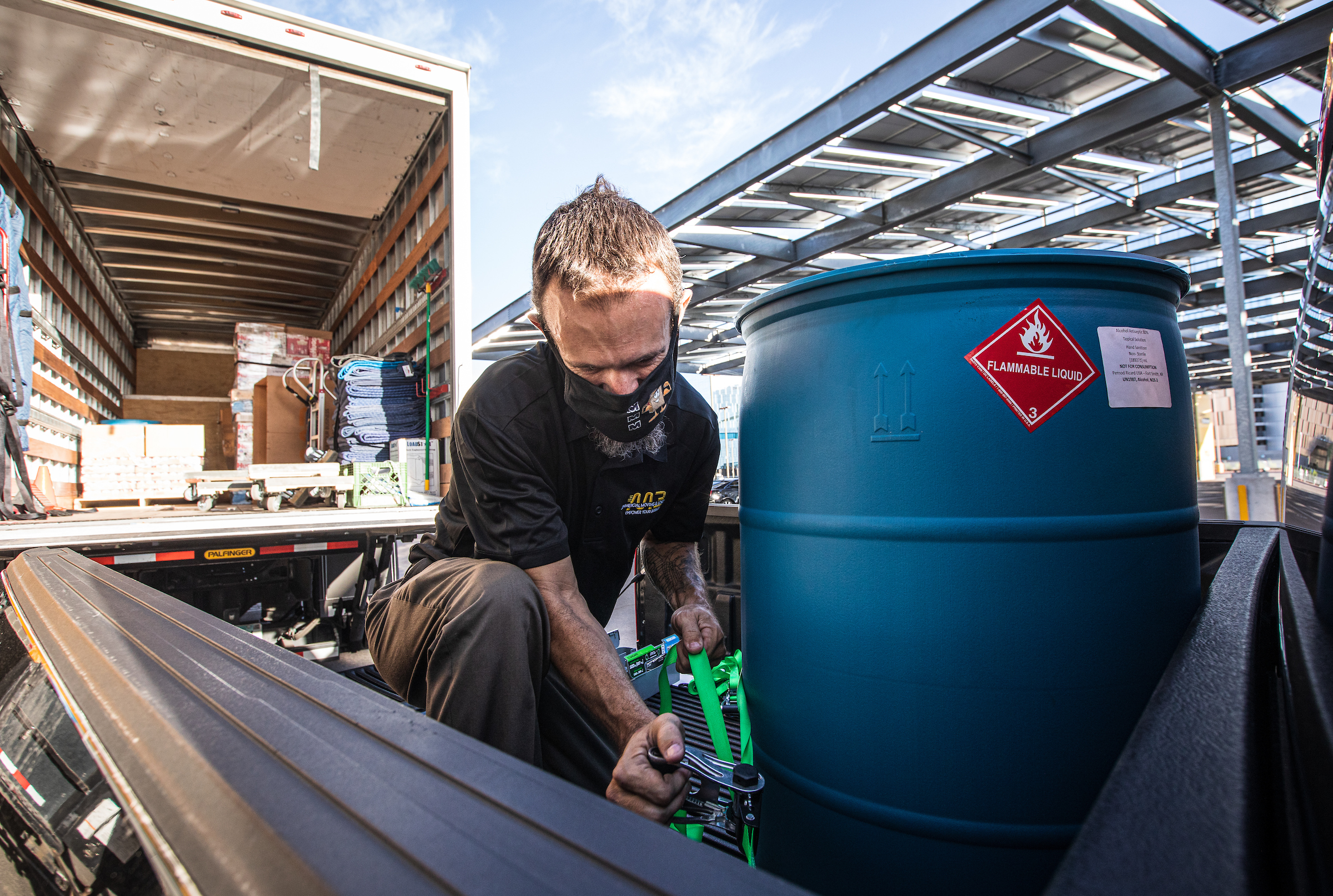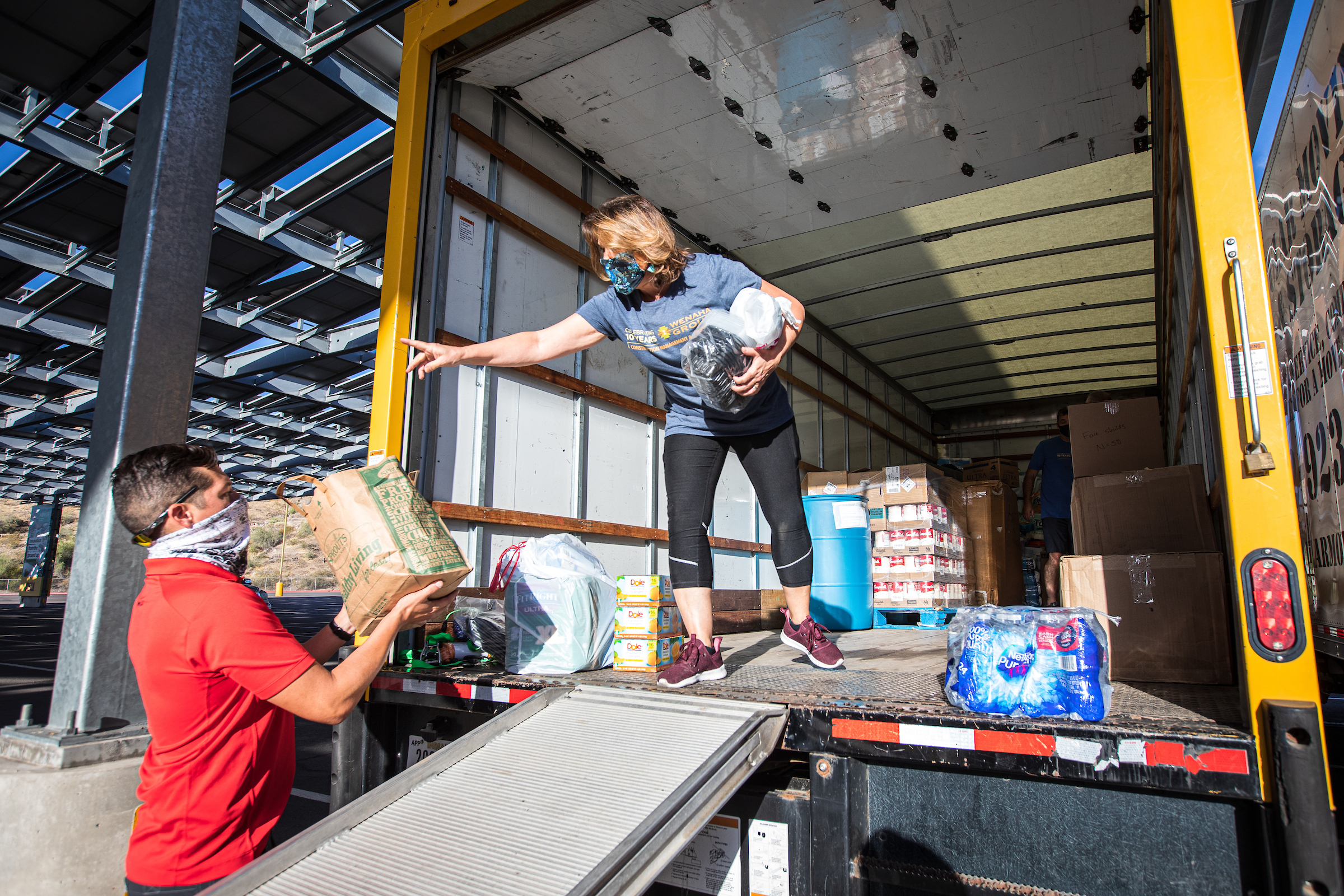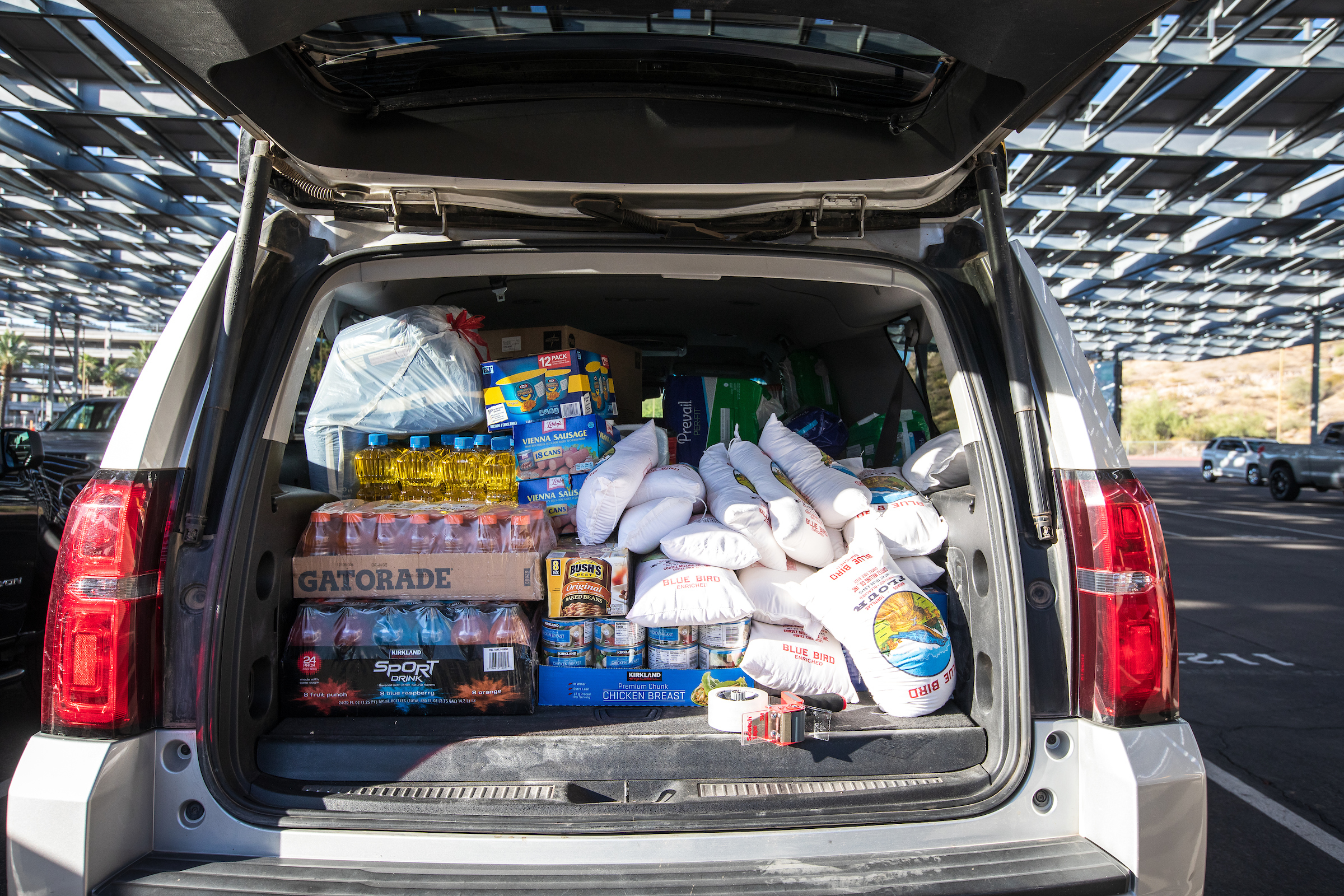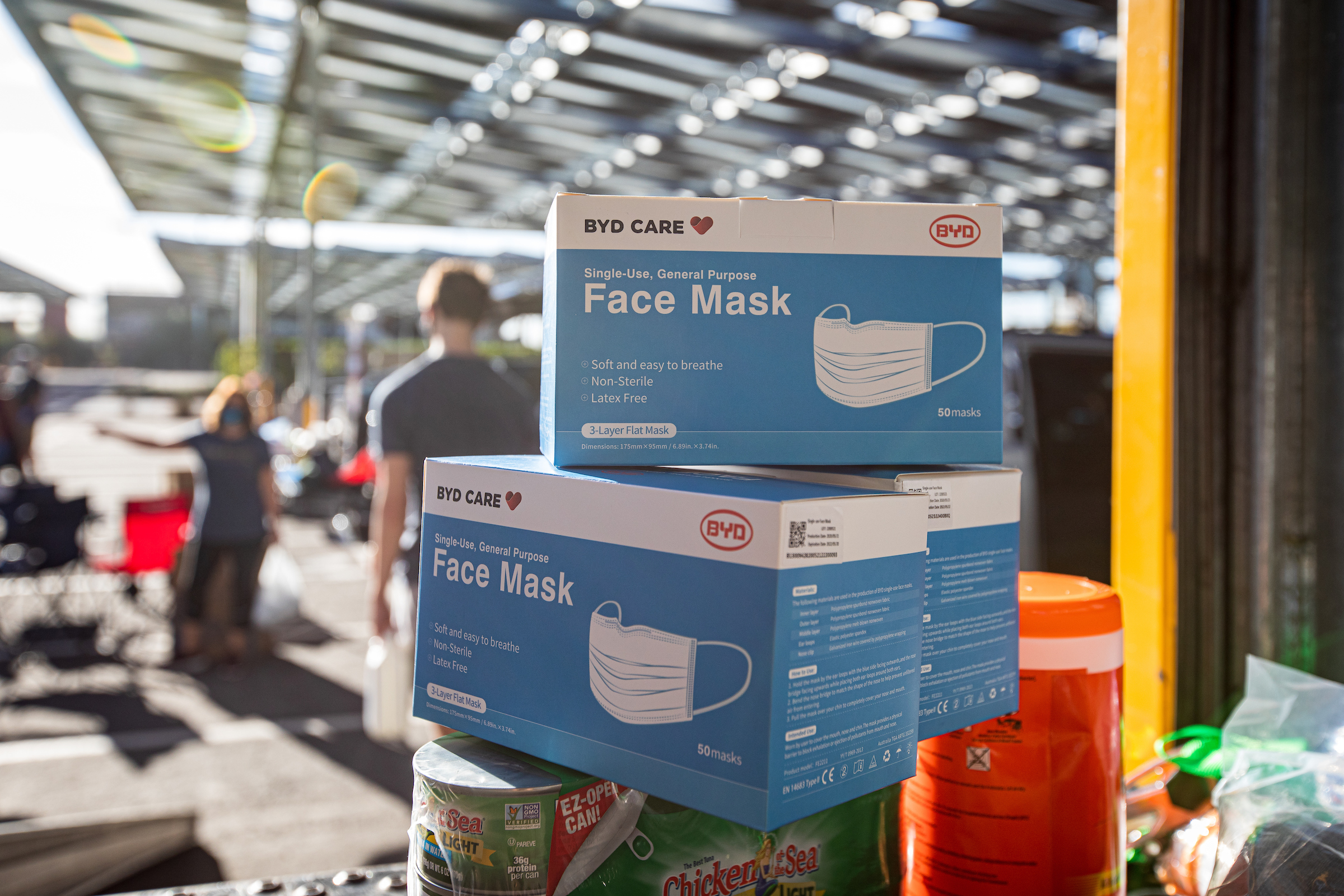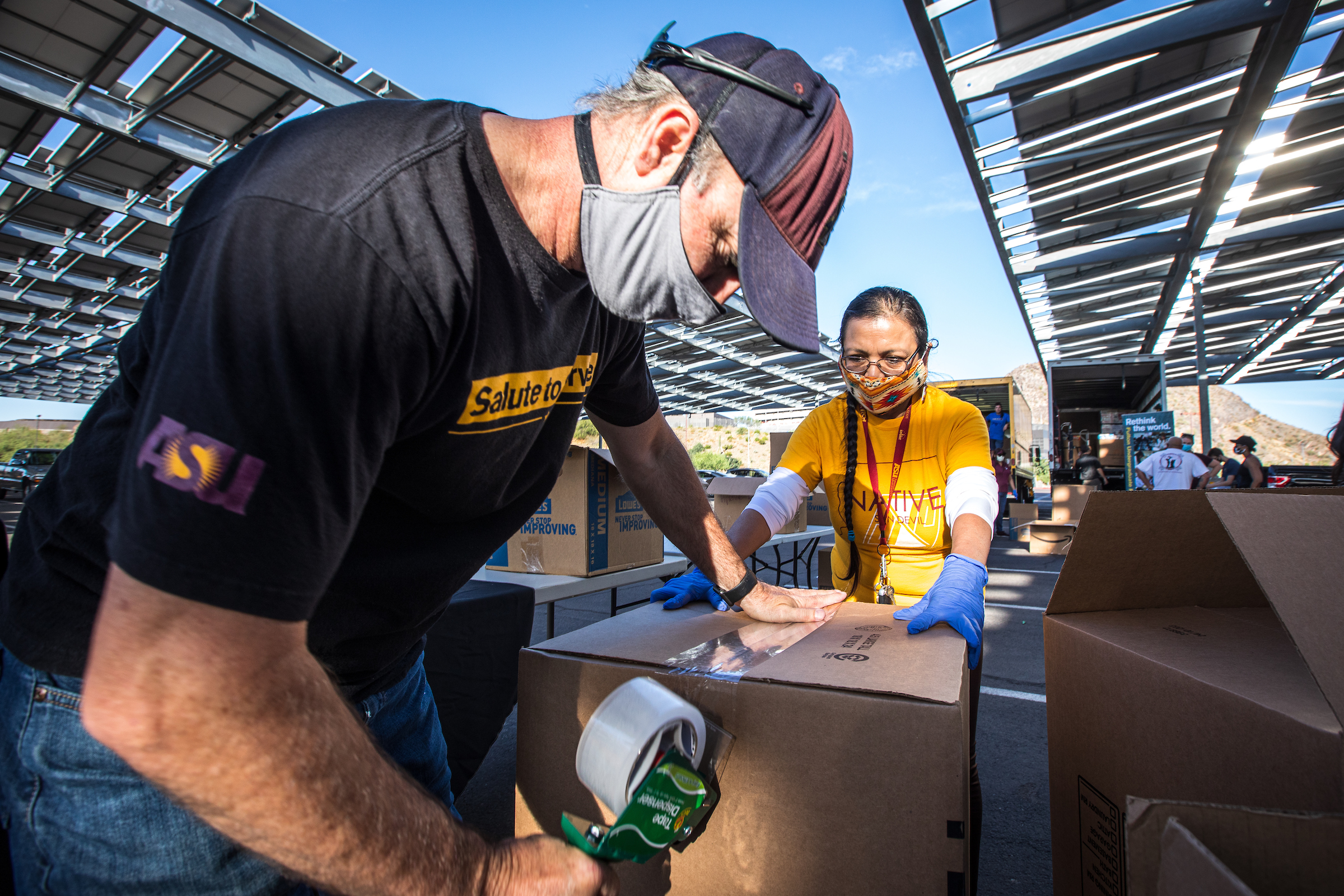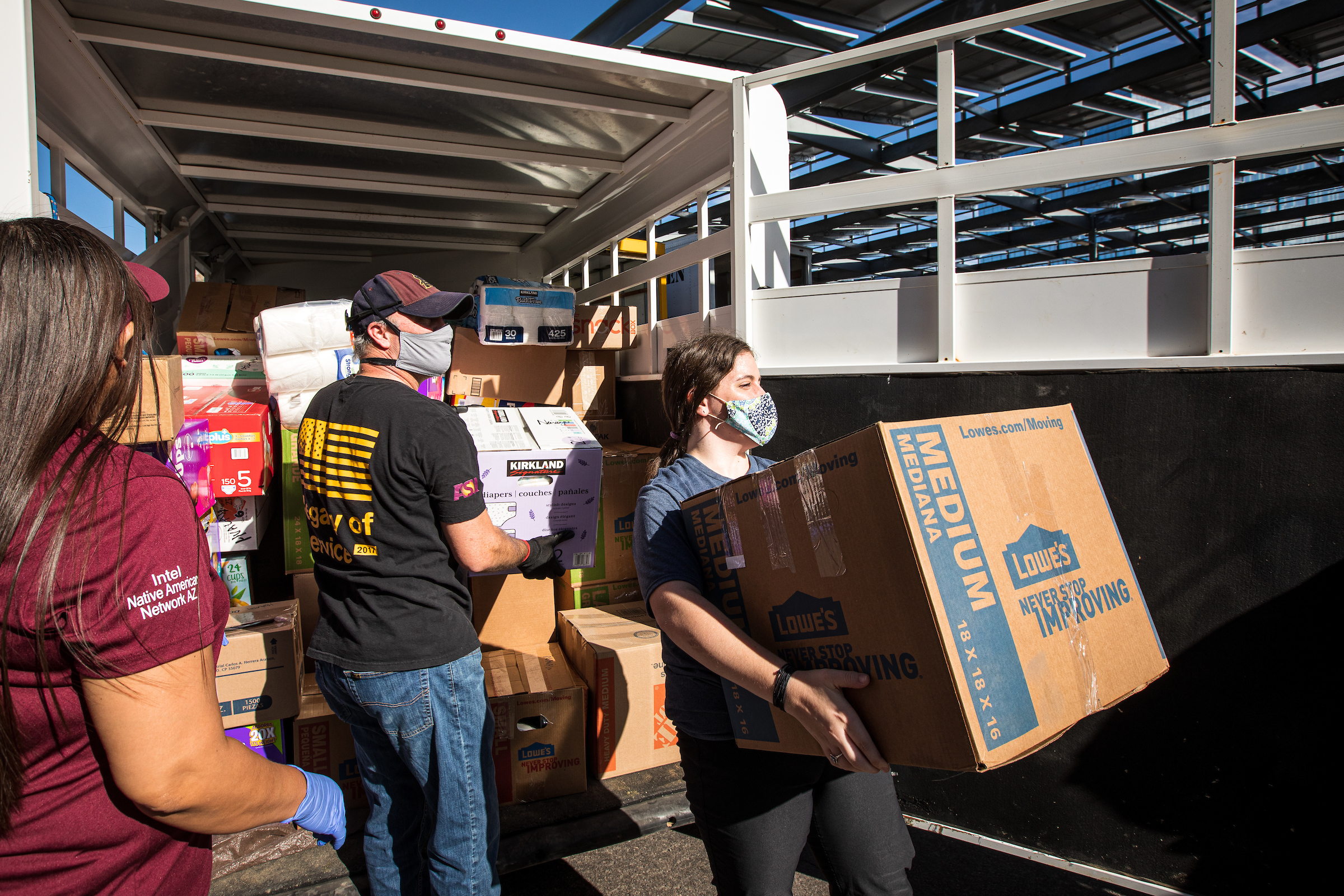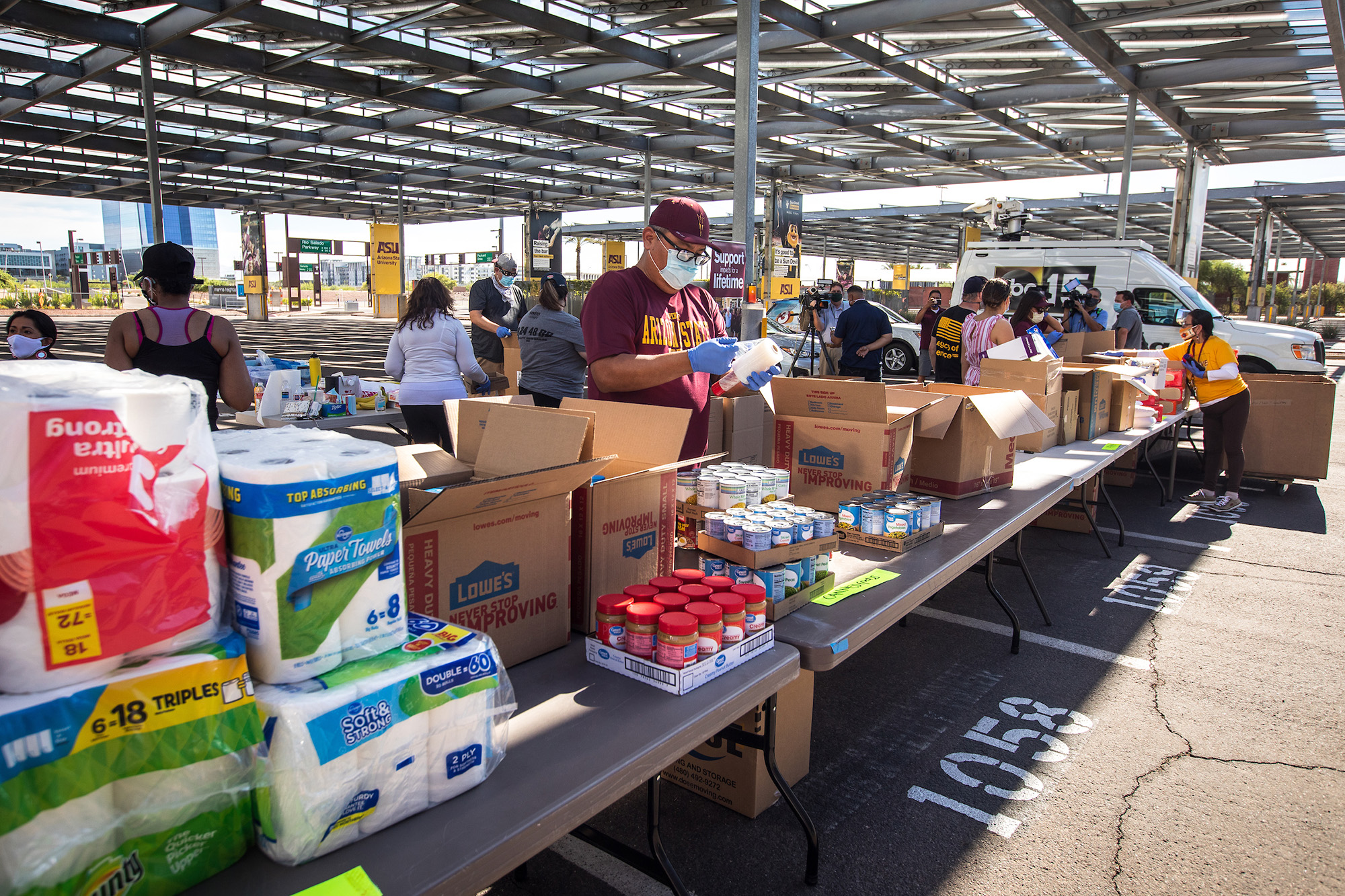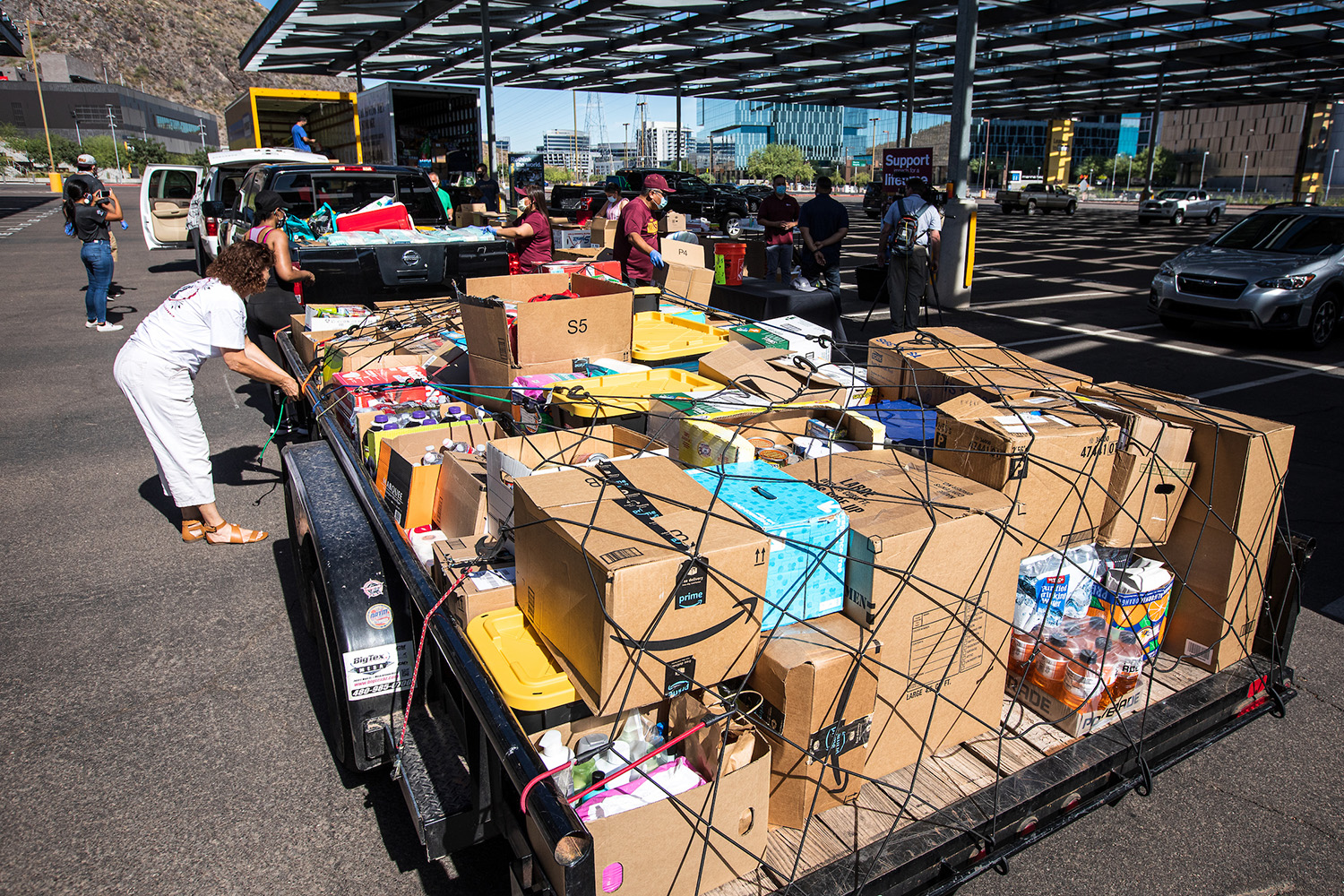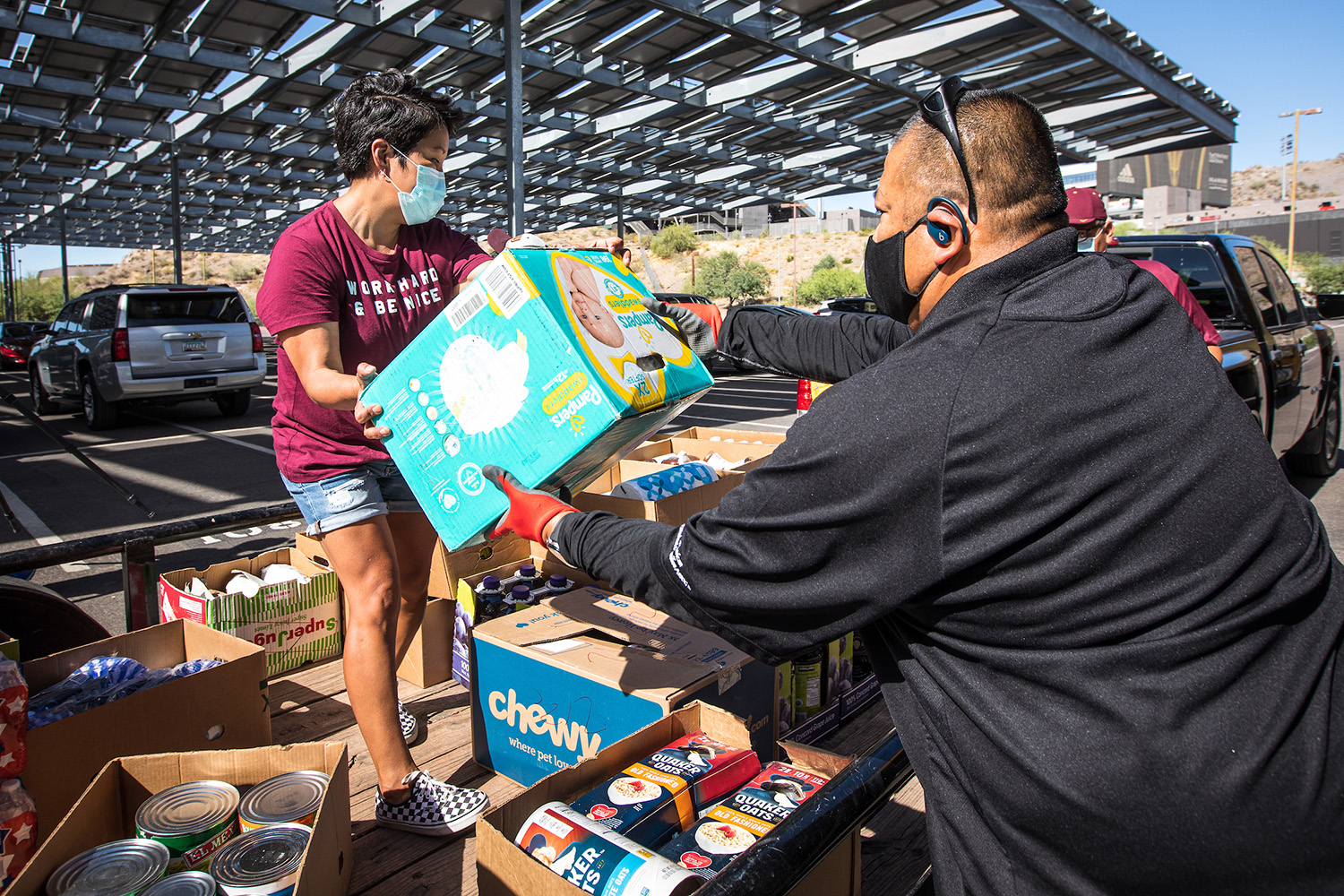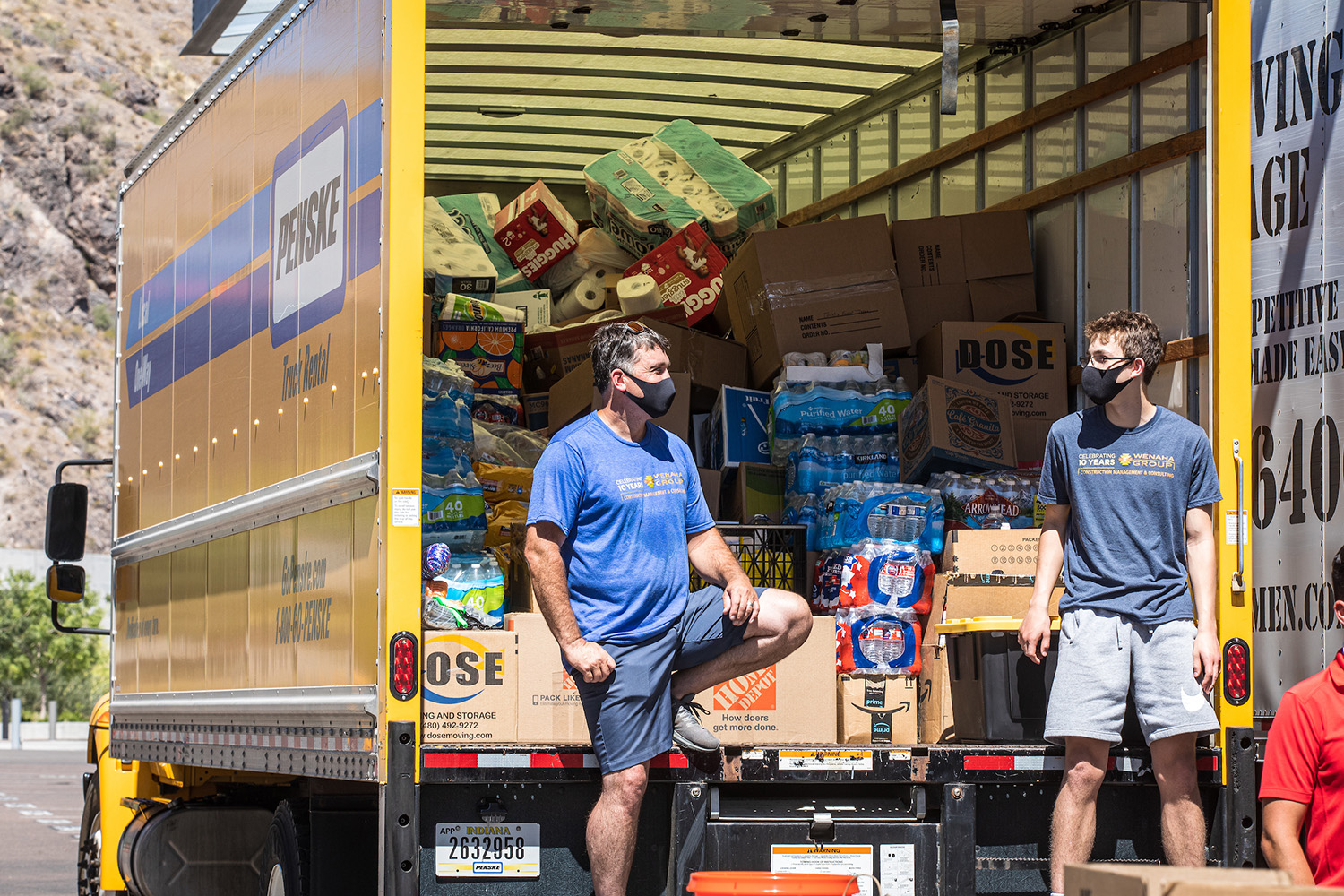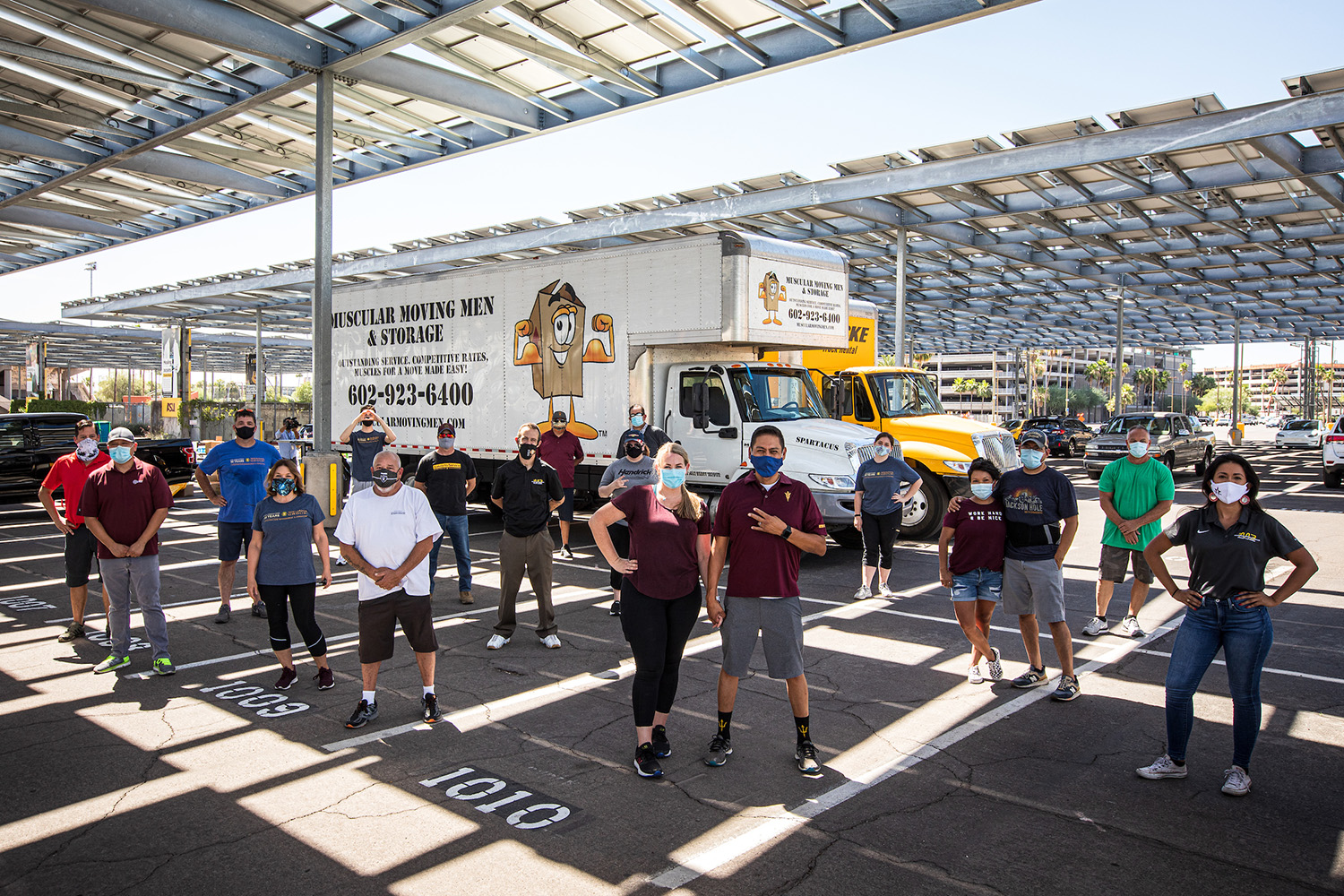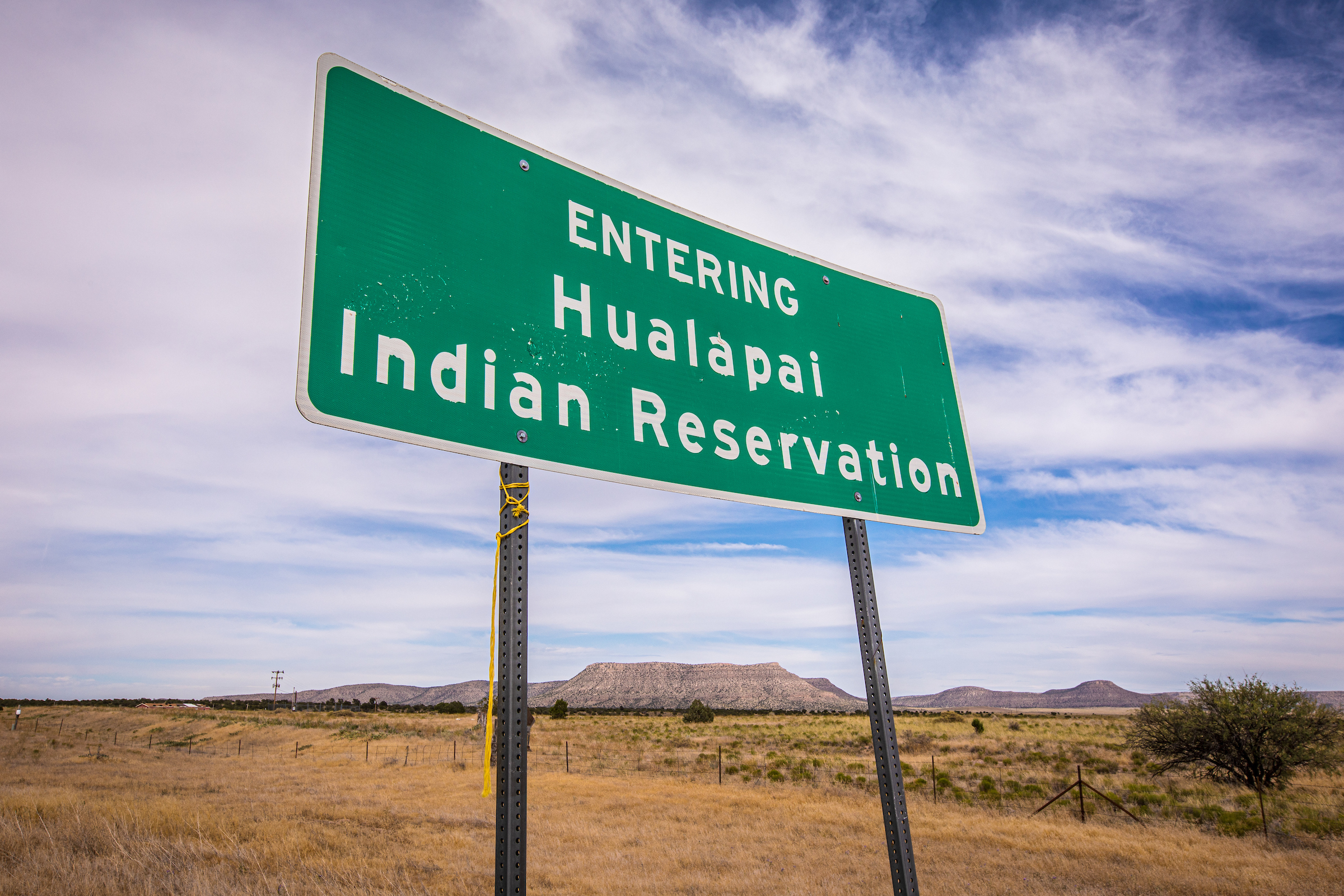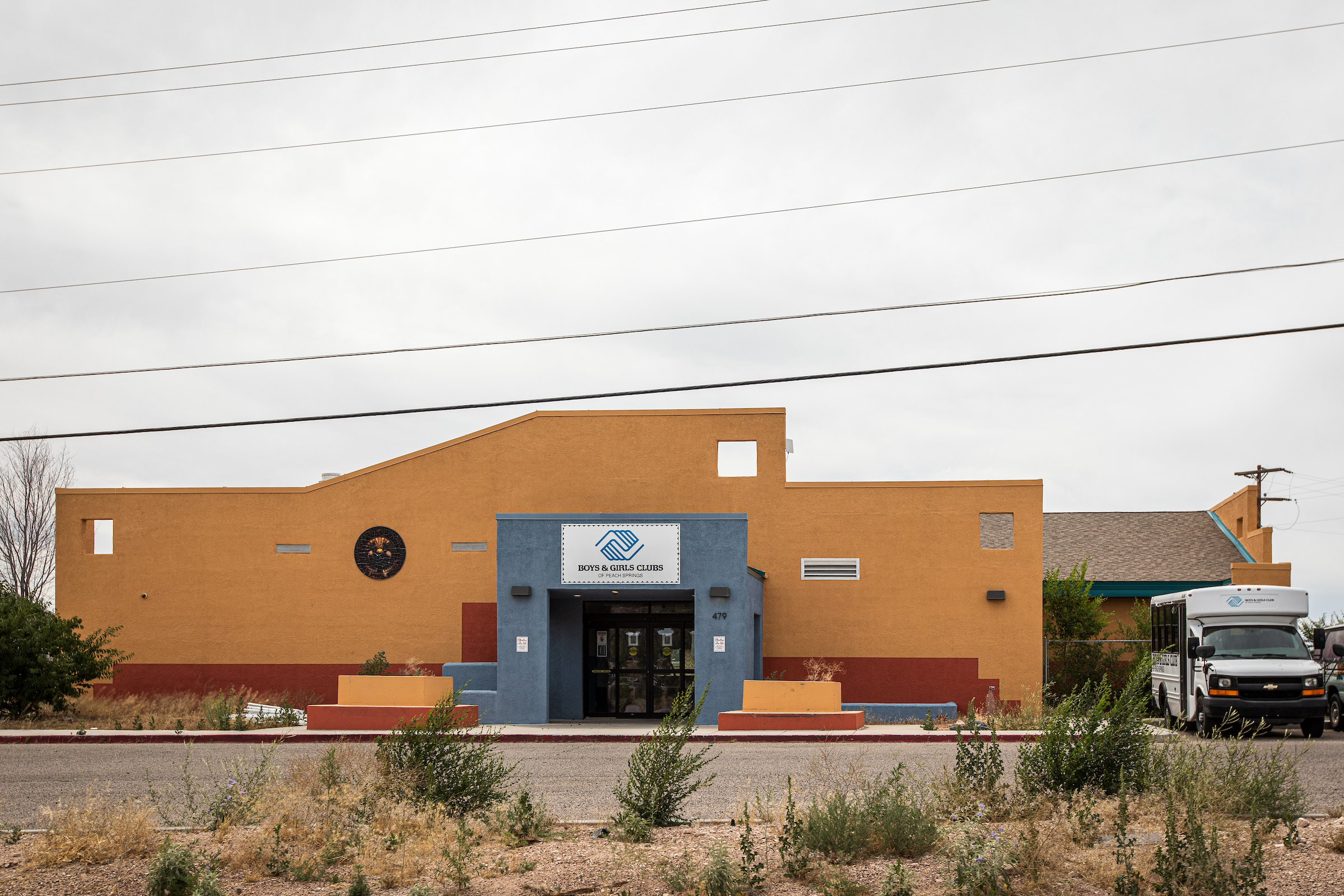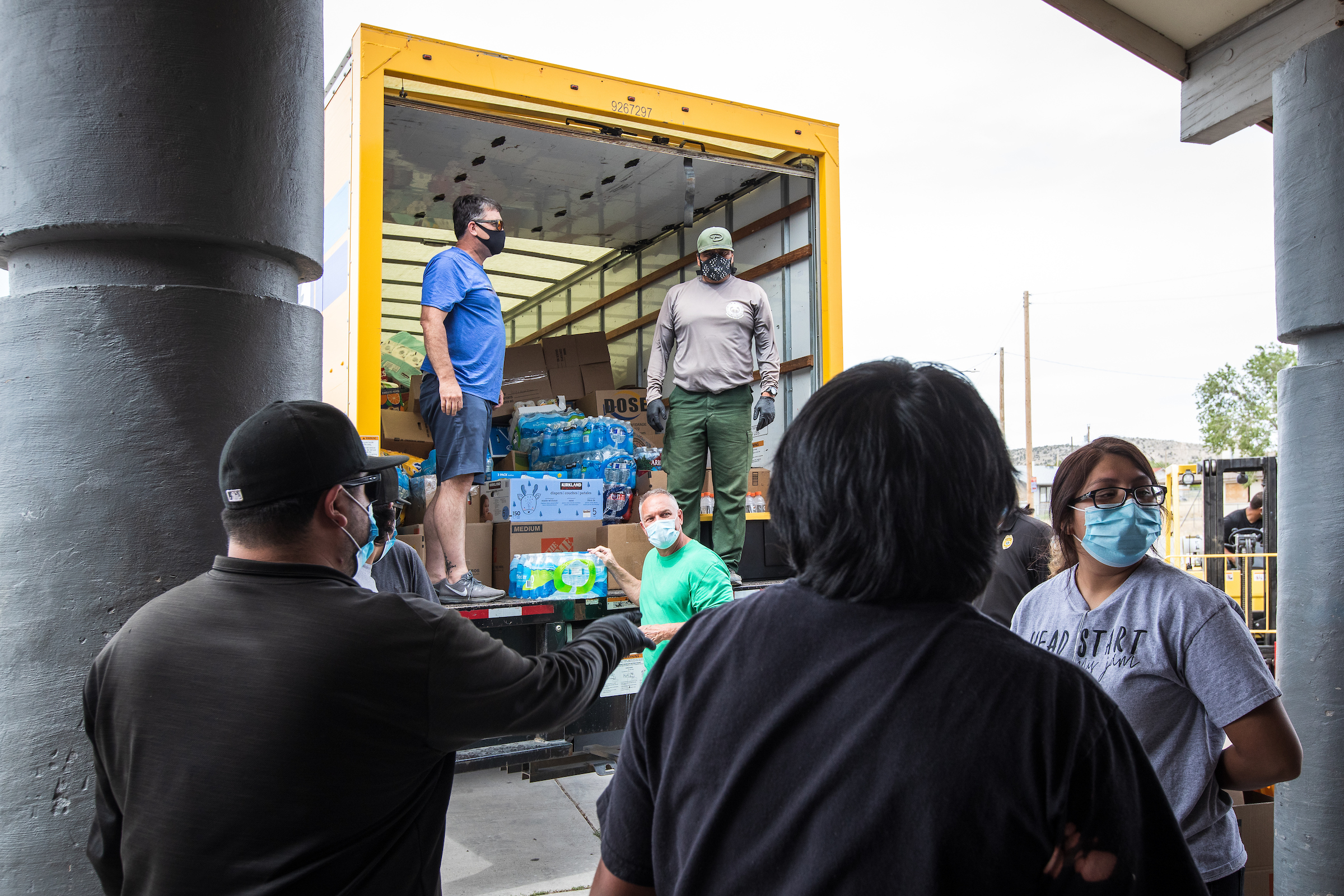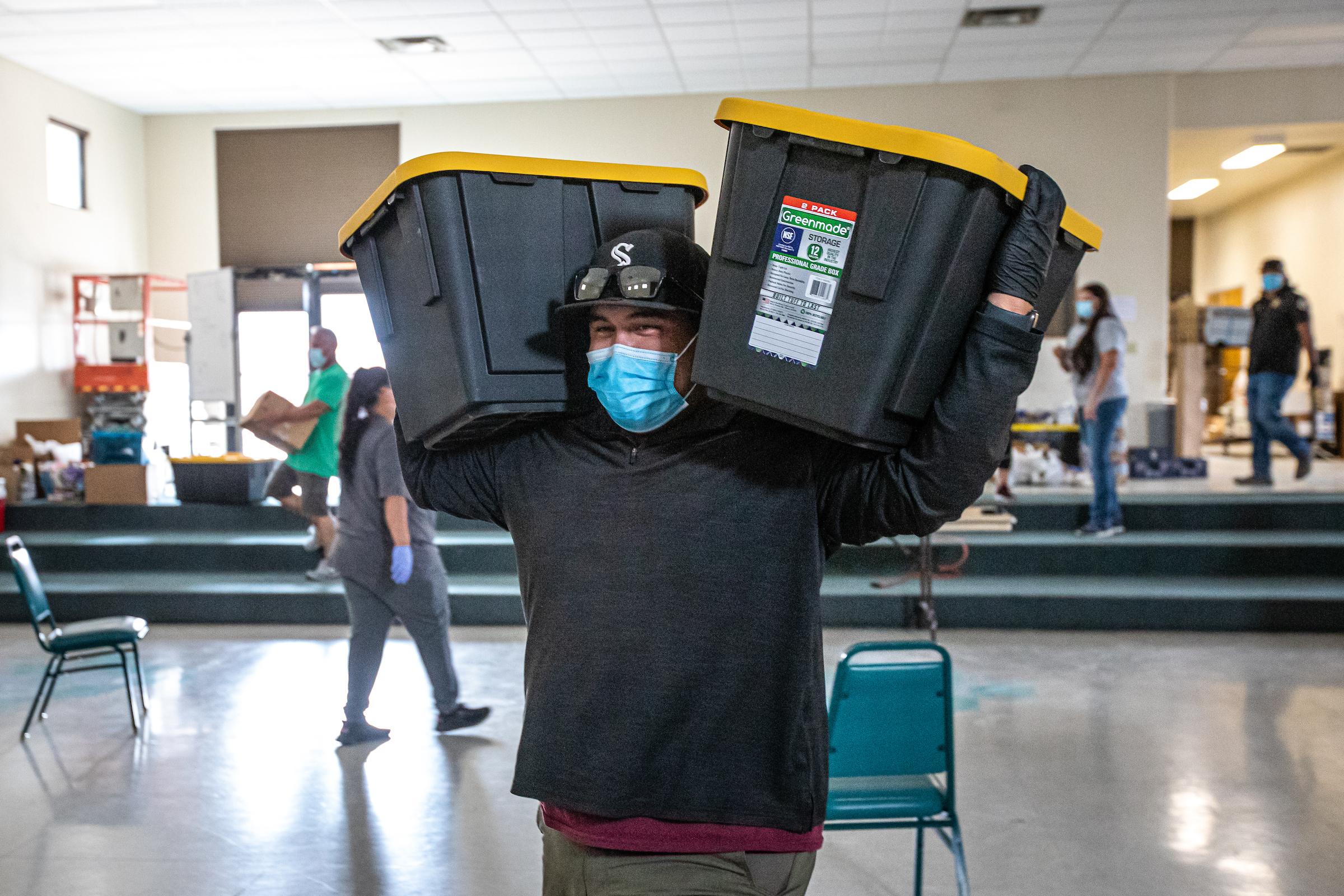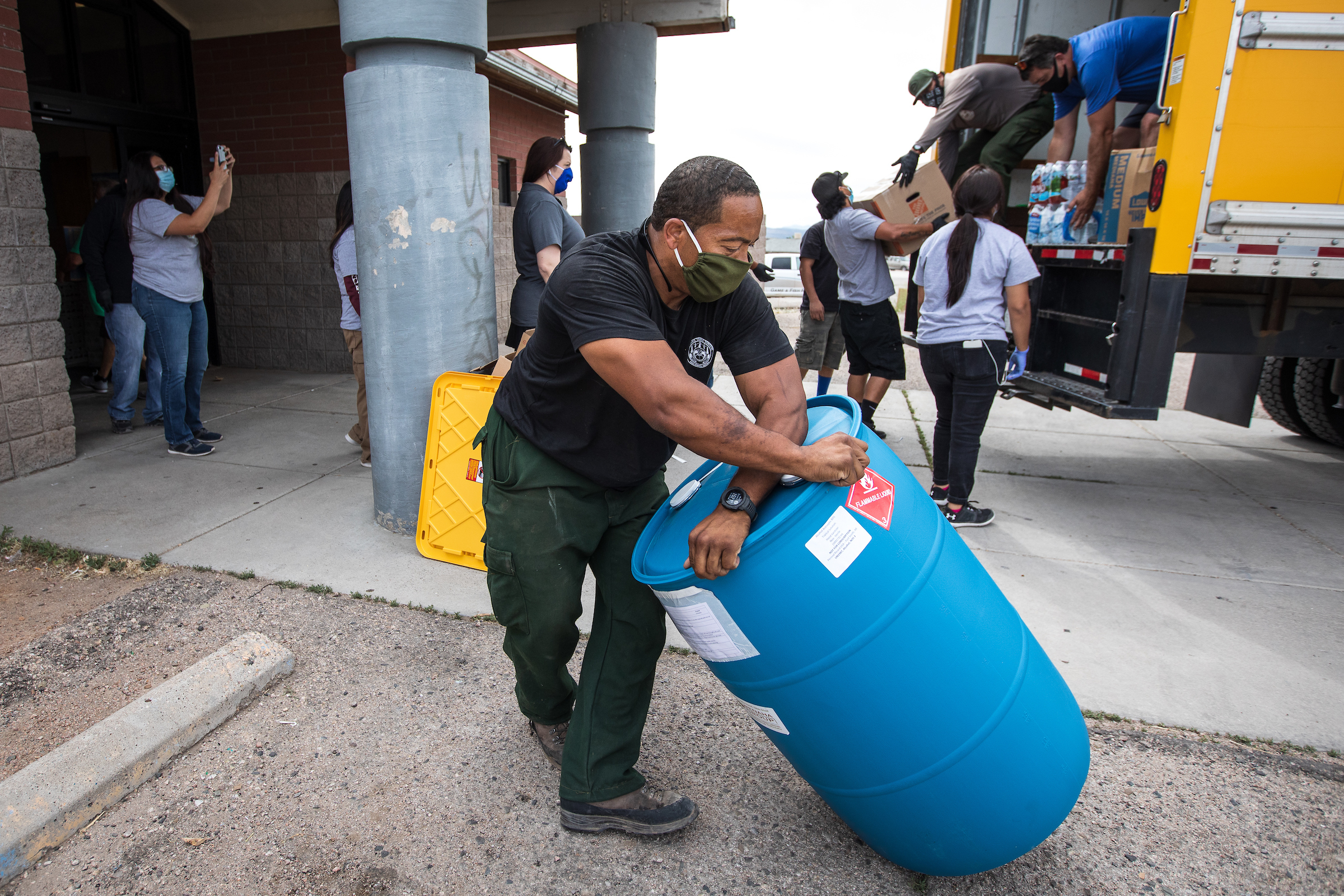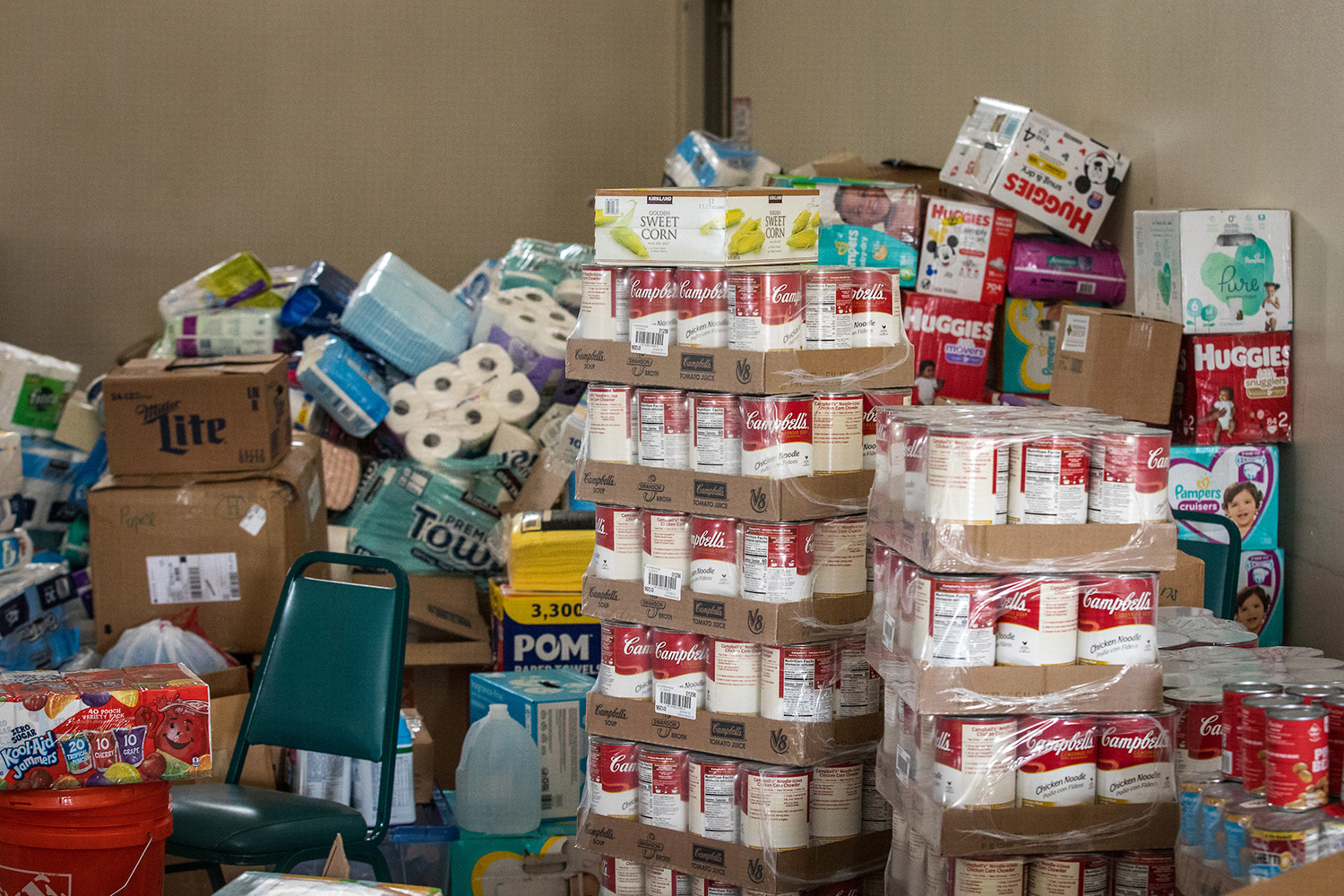The First Peoples' COVID-19 Resource Drive is an initiative to supply much needed supplies to tribal communities struggling with the impact of the pandemic. Created and managed by a team of Arizona State University alumni, the group’s first project sent emergency supplies to Navajo and Hopi communities.
The second drive took place on June 25 at Sun Devil Stadium. Three moving trucks full of supplies were dispatched to Navajo, Hualapai, Havasupai and White Mountain Apache communities.
“Initiatives like the First Peoples' Drive assist tribal governments and agencies with relief efforts,” said Marcus Denetdale, program director for ASU’s Construction in Indian Country Program. “In this case, the supplies went directly from Sun Devil Stadium to tribal doorsteps in three days or less. These supplies help low-income families economically and, perhaps more importantly, keep elders and high-risk citizens from going into harm’s way — stores and public gathering places — for essential items.”
“Tribes are resilient and determined to see through this pandemic just as our ancestors have in times past,” Denetdale continued. “We thank all those who volunteered, gave monetarily or donated items and time to come support the First Peoples' COVID-19 Resource Drive.”
The team is developing a plan to continue supporting tribal communities of Arizona as long as they are affected by COVID-19.
Written by Terry Grant/ASU Media Relations
Photo essay by Charlie Leight/ASU Now
ASU volunteers sort through the stacks of donations received at the second First Peoples' COVID-19 Resource Drive event on June 25 at Sun Devil Stadium in Tempe.
Jason Miguel, with M3 Moving, secures a 55-gallon barrel of hand sanitizer that will go to the Hualapai tribe later that day along with other donations and supplies.
Wenaha Group's Kari McCormick (right), an event organizer, gives directions about loading the moving truck as Bob Terry III hands her a bag of donations.
ASU volunteers emptied cars, trucks and trailers that arrived to the Sun Devil Stadium donation drop-off point loaded with nonperishable food, paper products, water, pet food, hand sanitizer and personal protective equipment.
Personal protective equipment, such as face masks and hospital gowns, was among the categories of donations requested by the initiative.
ASU staff members Mike Sever and Vickie Baldwin tape the bottoms of boxes that will be filled with sorted donations.
Incoming first-year ASU student Hunter McCormick, daughter of organizer Kari McCormick, unloads a box of donations from the Higley High School rodeo and equestrian teams.
Shawn Allison, of the ASU Native American Alumni Association, wraps flats of canned goods.
The Native American Fatherhood and Families Association arrived with a trailer loaded down with donations for the drive.
ASU alumna Tammie Billey hands off boxes from the Native American Fatherhood and Families Association donation.
Wenaha Group president Rob Quaempts (left), chats with his step-son Dillon Strey, 16, as they are about finished collecting donations.
Donations filled two 26-foot trucks; the Penske transport headed to the Hualapai Tribe, and the Muscular Moving Men and Storage vehicle left to deliver its contents to the Navajo at Fort Defiance.
The Hualapai Indian Reservation is in Mojave Country, in the northwest part of the state.
The Boys and Girls Club in Peach Springs acted as the staging point for the truckload of donations to be distributed to the community.
The Hualapai tribe is under a "stay-at-home" order and are unable to make it to the closest large town, Kingman, which is 50 miles away for supplies.
Juwan Walker, a commissioned officer with the Hualapai security branch, carries tubs filled with supplies from the First Peoples' COVID-19 Resource Drive.
Fire department engine captain Alonzo Smith moves a 55-gallon barrel of hand sanitizer into the staging area.
Supplies gathered and distributed by First Peoples' COVID-19 Resource Drive will help protect some of the most high-risk Native American communities. The group will continue its relief efforts as long as the pandemic threat remains.
Top photo: Dylan Graham sorts and packs food items collected for the First Peoples' COVID-19 Resource Drive near Sun Devil Stadium on June 25, 2020. Graham is a friend of event originators Katherine and Darryl Sam. Photo by Charlie Leight/ASU Now
More Health and medicine

Reducing waste in medical settings
Health care saves lives, but at what cost? Current health care practices might be creating a large carbon footprint, according to ASU Online student Dr. Michele Domico, who says a healthier…

ASU offers bilingual counseling to Spanish speakers
Arizona is one of the five states in the nation with the highest percentage of Hispanic residents, according to the U.S. Department of Health and Human Services Office of Minority Health, and …

College of Health Solutions launches first-of-its-kind diagnostics industry partnership to train the workforce of tomorrow
From 2007 to 2022, cytotechnology certification examinees diminished from 246 to 109 per year. With only 19 programs in the United States, the cytology workforce that stands at the front line of…



